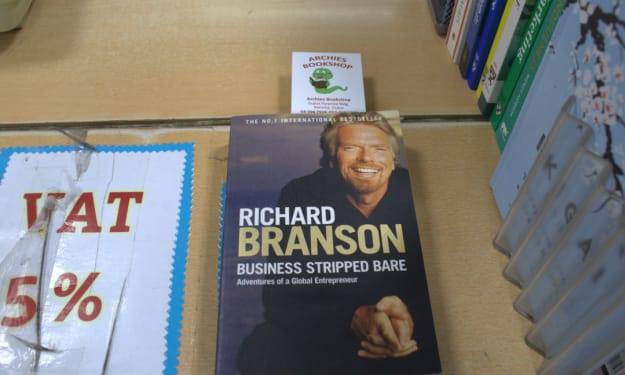How to manage money ?
Basic but effective | Book A Dog Called Money

Welcome to Better Version, a channel dedicated to sharing knowledge on comprehensive self-development through great books. This week, I'd like to share with you a book titled "A Dog Called Money." I noticed that this book has been translated into Vietnamese under the title "Chú Chó Mang Tên Money - Tiền Không Đợi Tuổi." As usual, I'll leave the detailed information about this book in the video description.
When discussing the topic of money, we cannot ignore a reality around us: some people earn a lot but cannot save a penny, while others with relatively modest incomes and no family support achieve financial freedom early on. It seems that for wealthy people, making money is easy, and having money only leads to more money. On the contrary, for those with less, everything is challenging. Why does this contradiction exist? It's because the rich know how to seize good opportunities, while the poor miss them, right? The answer doesn't lie there. The real difference between the affluent and the needy isn't about opportunities to make money, but in their mindset.

For instance, you will see that those with a wealthy mindset, even with little money, still think about how to manage their finances. In contrast, the poor feel that managing money is out of their reach because they don't have much money to manage. This classic book on financial enlightenment and management will tell you that if you are still worried about money, if you are constantly thinking about cutting expenses and saving when you feel lacking, and if you believe you need to wait until you have more money to start learning financial management, such thoughts will only make you more anxious and financially insecure. To change your finances, you must start by changing your mindset and think about things you never considered before to create a different life.
The author of this book is Bodo Schäfer, a famous German investor and entrepreneur known as Europe's number one financial master. At the age of 26, he fell into heavy debt. He then decided to start managing his finances, developing and implementing his own series of strategies. In less than four years, he got out of debt and even lived a financially free life through financial management. The financial management perspective in this book corrects many misunderstandings people have about money. This book is captivating because it is written in the form of a lively fairy tale about finances. The author initially aimed to guide children to understand and use money properly from a young age instead of being controlled by it. Unexpectedly, after its publication, the book received high praise and quickly topped the best-seller lists in Germany, becoming a famous financial management book throughout Europe and being translated into over 30 languages worldwide. Many adult readers have written heartfelt letters saying that the story in the book truly enlightened them, prompting them to seriously consider financial management and understand the secrets to achieving wealth.
If you come from an ordinary or less fortunate family, if you want to learn how to manage finances to increase your income, if you want to get rid of financial burdens and debt, you can start to change through the basic but extremely effective financial management methods from this interesting financial fairy tale for children. Now, let's listen to today's shared content.

To manage money, you must first delay gratification. The story begins when the poor girl Kira moves to a new place. Kira's parents fell into financial crisis due to a mortgage and were sued by the bank. The girl wished for a dog to be her friend but was always afraid to mention this wish because she constantly heard her parents complaining about their lack of money. However, one day, Kira found a white dog injured by the roadside. She brought it home and cared for it, and since they couldn't find its owner, the family kept it. Kira loved the dog dearly and named it Money. She even risked her life to save the dog when it accidentally fell into the river.
A year later, when Kira turned 12, her family's situation hadn't improved. Her parents were still struggling to pay off the mortgage debt, and Kira received less and less pocket money. One day, while watching TV, Kira saw her favorite band release a new CD. Her enthusiasm for the band made her forget all practical concerns about money. She picked up the phone to order the CD, eager to listen to the new songs. Suddenly, she heard a voice saying, "Kira, you should think twice. Can you really afford it? Once you buy this CD, you won't have any pocket money left for the month." Startled, she turned around but only saw her dog, Money, sitting there. Assuming she was hallucinating, she continued to call and place the order.

This time, she heard again, "Kira, you need to learn to control yourself, or you'll soon go bankrupt." She froze, shocked to realize that the voice came from her dog, Money. Terrified, but Money quickly reassured her, "Don't be scared. What you need to do now is resist the urge to gratify yourself." It turned out Money was not an ordinary dog. Not only could he talk, but he was also a financial management expert. This special advisor reminded Kira and us that an essential step to becoming wealthy is the ability to delay gratification.
Indeed, how often have we satisfied ourselves with countless reasons to spend money, thinking a little won't hurt? However, every expenditure exceeding the monthly budget often stems from cumulative small expenses. Therefore, to manage finances effectively, the first step is learning to delay gratification. Psychologist Walter Mischel stated that delaying gratification means giving up immediate satisfaction to achieve a more valuable long-term result.
However, many people might wonder how to recognize which gratifications to delay. Life is also about survival, which requires meeting spiritual needs. Some things must be bought to serve life; if not spent now, the opportunity will be lost forever. If we are too frugal, what is life?
Delaying gratification doesn't mean blindly suppressing your needs but reasonably abandoning decisions that affect the realization of long-term meaningful goals. In accumulating wealth, endless desires will hinder financial freedom. By improving your ability to delay gratification and minimizing irrational spending, you can avoid becoming a slave to your desires. According to Money, to effectively delay your desires, you need to identify your long-term goals.

Most people fail because they cannot focus in one direction. Kira, now obedient, hung up the phone and listened to Money's solemn words. "From today on, we will only talk about one thing: how to make money." Money began instructing Kira. First, write a list of 10 things you want to achieve when you have more money. But once Kira completed the list, Money immediately asked her to remove seven items and keep only the three most important ones. Kira protested, saying none could be left out. Money sternly explained, "Only one clear goal will be the motivation for you to move forward."
Scholar William Damon conducted a social survey where he interviewed hundreds of homeless people and asked why they didn't work. The surprising common answer was that they had no real desires to achieve. Damon concluded that vitality is closely related to goals, and only goals can stimulate vitality. If we work just for the boss, it's hard to increase income. If we start a business on a whim, we will easily stop soon. Only with clear goals can people overcome all difficulties in the process of making money. Everything needs to revolve around the goal instead of dispersing energy when facing unrelated temptations.
The clearer you are about your desires, the clearer the path you take will be. Specific goals help you focus on one point for a long time. Like Thales of Miletus said, most people stumble through life blindly, not knowing which direction to take. The sole reason is they constantly change their life's direction. If you can concentrate your thoughts, energy, and consciousness in one direction and maintain this for a long time, you will understand the essence of life. Spending most of your time and effort on one thing makes it hard not to achieve success.

Returning to Kira and Money's story, Money continued guiding Kira towards her important goals through three tasks:
Look at your wish list daily to constantly remind yourself of your goals. You also need a dream album; find pictures related to your desires and paste them into the album. This visualization will encourage you to keep finding ways to achieve your dreams.
Get a piggy bank and start saving coins to prepare for realizing your dreams.
Besides dreams, you need confidence to believe you can achieve them. Prepare a notebook and record daily successes, no matter how small. This success diary helps build significant self-confidence.
The essence of making money is helping others solve their problems. Kira followed Money's advice, reduced her goals to three, and started saving in two piggy banks. She also kept a success diary. Despite being ready, opportunities hadn't yet come. She worried about how a 12-year-old could make money. Money advised, "Don't always think about what you can't do. Seek opportunities in what others need." Money shared a story about a boy named Darian from America who started earning money at age eight by delivering newspapers and collecting garbage for neighbors. By nine, he learned to write ads on his father's computer, soon amassing significant savings. He then began producing TV shows, and by age 17, he was a millionaire.
Inspired, Kira asked her cousin Marcel for practical advice. Despite being only a year older than Kira, Marcel had become wealthy by identifying opportunities. He discovered that many families wanted fresh bread on Sundays but didn't want to go out, so he delivered bread to their homes, earning significantly more on Sundays than regular days. Additionally, he worked at a nursing home in the afternoons, helping elderly people with shopping or taking walks, earning 10 marks per hour, and making nearly 300 marks a month. Marcel emphasized the importance of recognizing people's needs and solving their problems as key to making money.
To avoid failure, you must save money first. Marcel's story inspired Kira, and she started making money by helping her parents with gardening and cleaning chores. She also babysat her aunt's dog, earning her first wages. However, Kira learned from Money that she needed to manage her earnings wisely. Money told her, "Each month, set aside 10% of your income for a dream fund and another 10% for an emergency fund. Use the rest for daily expenses and savings. By saving first, you ensure you don't run out of money for important things."
This lesson highlights the importance of prioritizing savings before spending, a fundamental principle of financial management.
Kira's journey with Money illustrates that managing money is not just about earning but also about wise spending, setting clear goals, delaying gratification, and always looking for opportunities to help others. By following these principles, anyone can improve their financial situation and work towards achieving financial freedom.
Thank you for listening. If you found this video helpful, please like, share, and subscribe to Better Version.
About the Creator
ZOEY THANH
Hardworking, honest, diligent
Enjoyed the story? Support the Creator.
Subscribe for free to receive all their stories in your feed. You could also pledge your support or give them a one-off tip, letting them know you appreciate their work.






Comments (1)
AA comprehensive one.